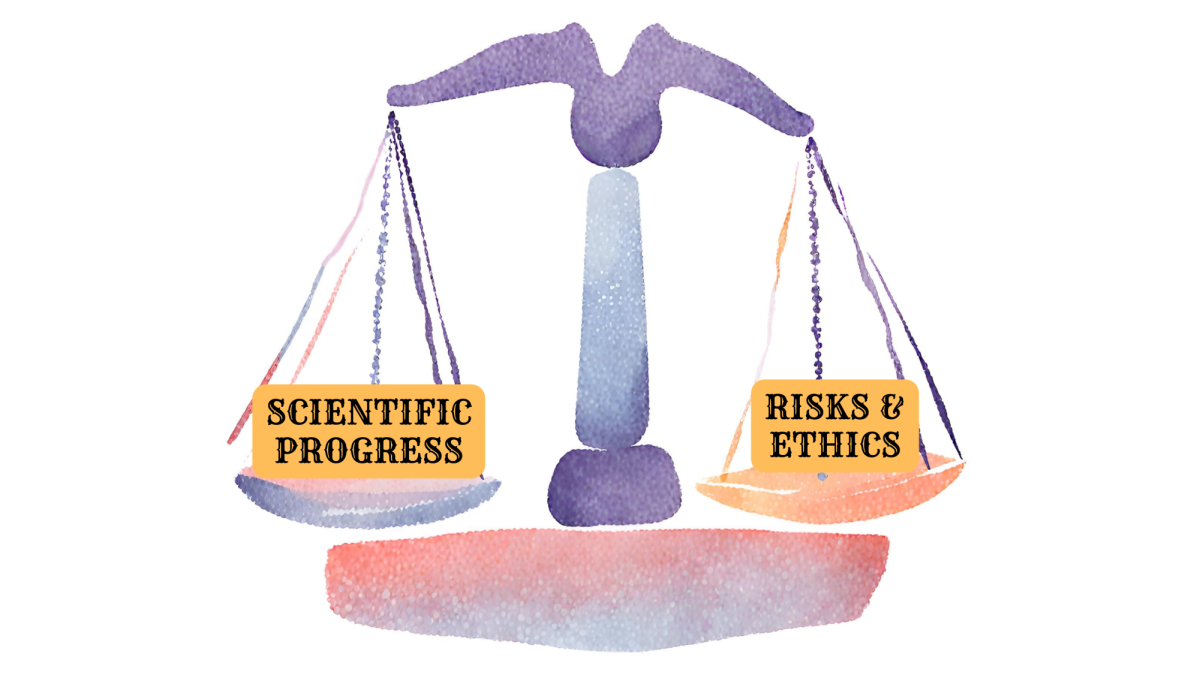As scientists explore areas like artificial intelligence (AI) and genetic engineering, pushback continues to surface due to concerns over the ethical implications and potential risks of the studies. While these concerns are valid and should be addressed with serious discussions, they should not end the pursuit of scientific progress.
With the introduction of technology like Clustered Regularly Interspaced Short Palindromic Repeats (CRISPR) and the advancement of AI, conversations regarding potential harmful effects and ethical concerns have emerged.
In the case of CRISPR, a system that allows for genetic modifications, the possibility of using its techniques to modify human genes came under discussion at the Third International Summit on Human Genome Editing. According to NPR, although the technology may enable the correction of mutations, acceleration of research into diseases, and the eradication of many genetic diseases, there is also the possibility of introducing new genetic mutations, creating “designer babies,” and other risks, as mentioned by attendees.
“There is a bevy of serious objections to reproductive genome modification. They include concerns about the safety of the modification … the risk of dangerous modifications let loose in the human gene pool, a slippery slope to using the technology to make designer babies, unethical eugenic uses of the technology that harm disability communities, and unequal, unfair access to the technology that only advantages the wealthy,” said Tina Rulli, a bioethicist at the University of California, Davis at the summit.
Due to such worries, the United States and several other nations continue to have bans on the creation of genetically modified babies.
Similarly, in the discussion surrounding AI, nearly 400 people — including top executives from Google, Microsoft, and the CEO of OpenAI, the company behind the AI language model ChatGPT — signed a statement that warned of its potential to end the human race, according to NBC.
Additionally, Eliezer Yudkowsky, an AI researcher, responded to the proposal for a pause on extensive AI-related experiments with the suggestion of an indefinite and worldwide ban on AI in his article “Pausing AI Developments Isn’t Enough. We Need to Shut it All Down.” Yudkowsky’s proposal demonstrates how concerns have begun to impede the pursuit of scientific progress. Discontinuing the development of AI could denote an end to the advancement of utilizing AI in the improvement of domains like health care, research, autonomous vehicles, and others.
While debates surrounding the advancements in AI and CRISPR have gained recent attention, such discussions on scientific progress are not uncommon historically. Genetically modified organisms (GMOs) and stem cell research have both encountered scrutiny or resistance due to their potential risks and ethical implications.
For example, critics of GMOs initially raised a series of plights, from the fear of GMO consumption causing antibiotic-resistant diseases to the possibility of reduced genetic diversity or even ethical issues regarding interfering with the natural flow of life. At the same time, stem cell research has faced bans and pushback due to the ethical dilemma surrounding the collection and destruction of human embryos during the process of embryonic stem cell research.
Nevertheless, these concerns and risks did not halt these technological developments completely. By establishing regulatory frameworks, developments in GMOs and stem cell research were able to advance.
Regarding GMOs, the U.S. created the Coordinated Framework for the Regulation of Biotechnology, which led to the U.S. Food and Drug Administration (FDA), U.S. Environmental Protection Agency (EPA), and U.S. Department of Agriculture (USDA) working together to regulate the safety of GMOs and conducting studies to evaluate their safety before being made available to consumers.
In addition, the World Health Organization has developed international guidelines to determine the safety of GMOs. These establishments allow for the insurance of GMO safety and take advantage of the benefits of the technology, such as increased crop yield, the elimination of chemical fertilizers, reduced pesticide use, and improved nutritional value.
Moreover, countries like the United Kingdom and Sweden adopted regulatory environments and well-defined frameworks for acquiring embryonic stem cells, facilitating advancements in stem cell research in a responsible manner that addresses proposed ethical concerns. This permits further research into stem cell potential for treating various conditions and diseases.
The introduction of regulatory frameworks to ensure the safe and responsible development of technology can also be applied to genetic engineering and AI. With regulations set in place, researchers can pursue scientific progress without neglecting the potential risks and ethical concerns.
Regarding CRISPR, scientists have already called for a moratorium — a temporary ban — on human germline alterations, asserting that this will provide the time needed to establish an international framework before proceeding. A momentary pause, such as the one proposed, and establishing a framework would allow for advancements made with ethical issues and potential risks in mind.
Overall, even in the cases surrounding CRISPR and AI, it is apparent that with the proper process and regulations, humanity can enjoy the benefits of scientific advancements by finding the right balance between pursuing scientific progress and considering potential risks and ethical boundaries.












